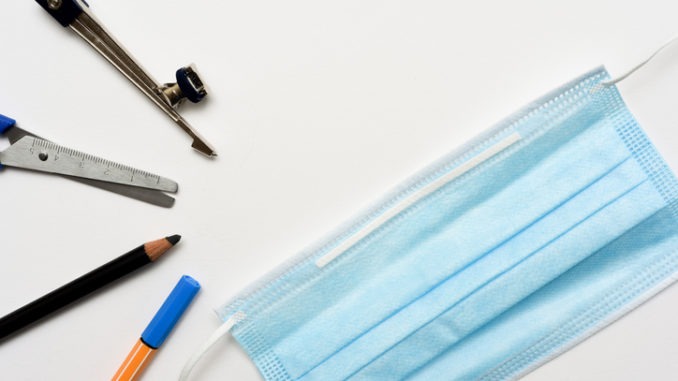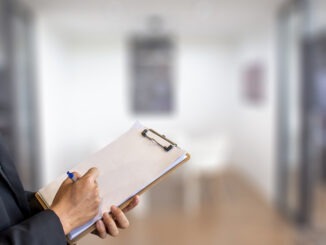
As reported by the Guardian, headteachers across England say they plan to encourage pupils to keep wearing masks during Omicron spread
Secondary schools across England say they will encourage students to wear masks indoors while the Omicron variant continues to spread rapidly, despite the government’s announcement curtailing the wearing of masks in classrooms this week. The move comes as many schools report severe staff shortages, with some primary schools asking parents to conduct daily lateral flow tests on their children before coming to school.
Headteachers say Boris Johnson’s announcement on Wednesday that the government would no longer advise wearing masks in classrooms took them by surprise and gave them no opportunity to consult parents or local authorities.
Schools North East, a network in the north-east of England, said 80% of schools in the region planned to retain some COVID-related measures, with many secondary schools retaining face masks in classrooms and communal areas. Case rates in England remain highest in the north-east, with 1,410 reported per 100,000 people. A majority of schools in the region reported that more than 10% of staff and students were absent, while one in four said 20% or more of their staff were off.
“Schools are still facing real challenges in getting staff cover, increasing staff workload and stress and impacting negatively on wellbeing. There are serious concerns for schools, with local pictures often radically different from the national picture,” said Chris Zarraga, the director of Schools North East.
St Peter’s Church of England school in Exeter is among those that has told parents it plans to continue with masks worn indoors, citing predictions that COVID cases would continue to increase around Devon.
“Despite the prime minister’s announcement [on Wednesday] regarding wearing of face masks in classrooms, I will be requesting that students do wear them in classrooms as well as corridors in line with other local and national schools,” the headteacher, Phil Randall, said in a message to parents.
Wearing a mask was “a kind and thoughtful approach that supports our school community and our families, many of whom have vulnerable children and adults living with them,” Randall said.
Andy Byers, the headteacher of Framwellgate school in Durham, said face masks were still needed because COVID rates in the region remained high. Byers wrote to parents on Wednesday evening notifying them of the decision, telling them that more than 60 students at the school were currently absent due to COVID, as well as 10 members of staff.
“Speaking to colleagues in other local secondary schools, we are all in a similar position,” with high levels of absence, some students missing important face-to-face teaching and a reliance on temporary supply teachers to fill in for absent staff, Byers said.
Other schools, including those in the Harris Federation multi-academy trust, said that masks would be optional for pupils who wanted to wear them.
The rate of new cases of COVID-19 among primary schoolchildren in England has reached record levels, according to new data from the UK Health Security Agency. The figures show 1,936 cases per 100,000 five to nine-year-olds in the week to 16 January, up 41% from the previous week.
While masks have never been advised for primary school pupils, headteachers are taking other measures. Helmshore primary school in Rossendale, Lancashire, this week asked parents to give their children lateral flow tests every day, after six staff members and 26 pupils at the school tested positive.
Greatfield Park primary school in Cheltenham has also asked parents and carers to test their children every morning.
Worcestershire county council said it has been working with 41 schools for “COVID-related support” since Monday. Hanley Castle high school in Worcestershire is among those retaining mask-wearing indoors, with head teacher Lindsey Cooke telling the BBC the school wanted more time to see if local infection rates were falling.
“Our year 11 and year 13 exam groups have missed so much school already, what we do not want to do is to rush into taking masks off and then get another outbreak in those year groups,” Cooke said.
The government’s advice since the start of the school year has been for pupils in year 7 and above to wear masks in communal areas such as corridors. When schools reopened after Christmas, the advice included wearing of masks in classrooms.
But Johnson told MPs on Wednesday that the advice for classrooms would be withdrawn the next day, while the advice to wear masks in communal areas would end on 27 January, along with other plan B measures.
Sajid Javid, the health secretary, defended the decision because of national falling case numbers and the impact of mask-wearing on learning.
“The government’s job is to take a balanced and proportionate decision, in this case balanced against the best interests of children. It is harder to teach children and it will have an impact on their education if they are required to wear masks,” Javid said.



Be the first to comment